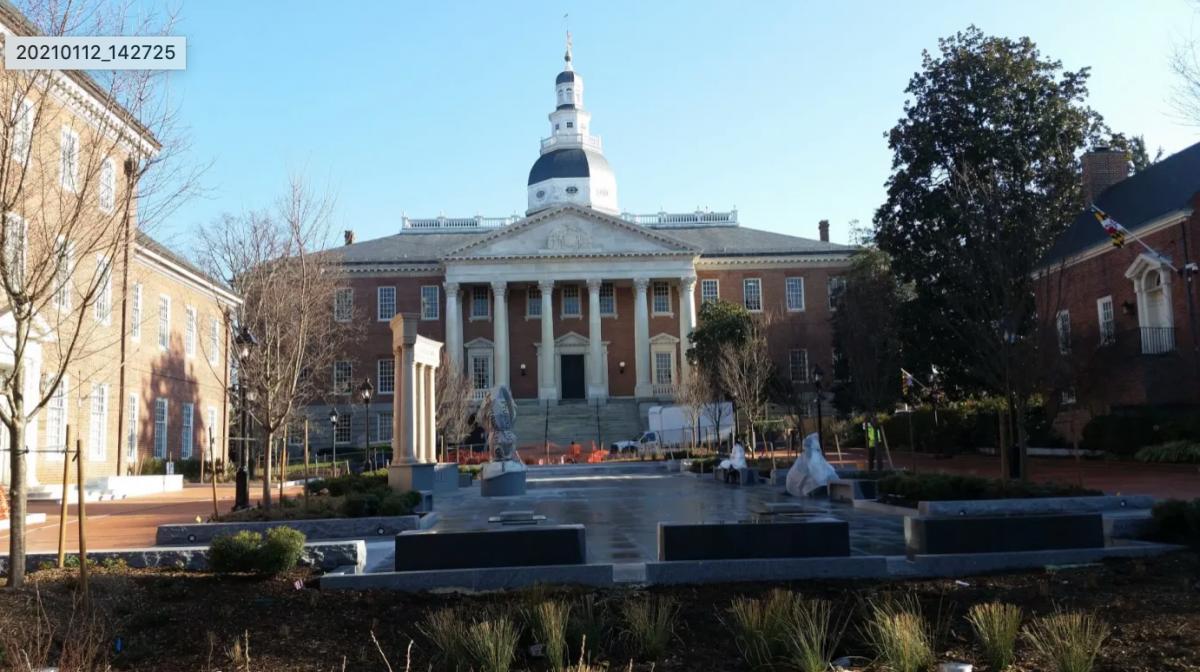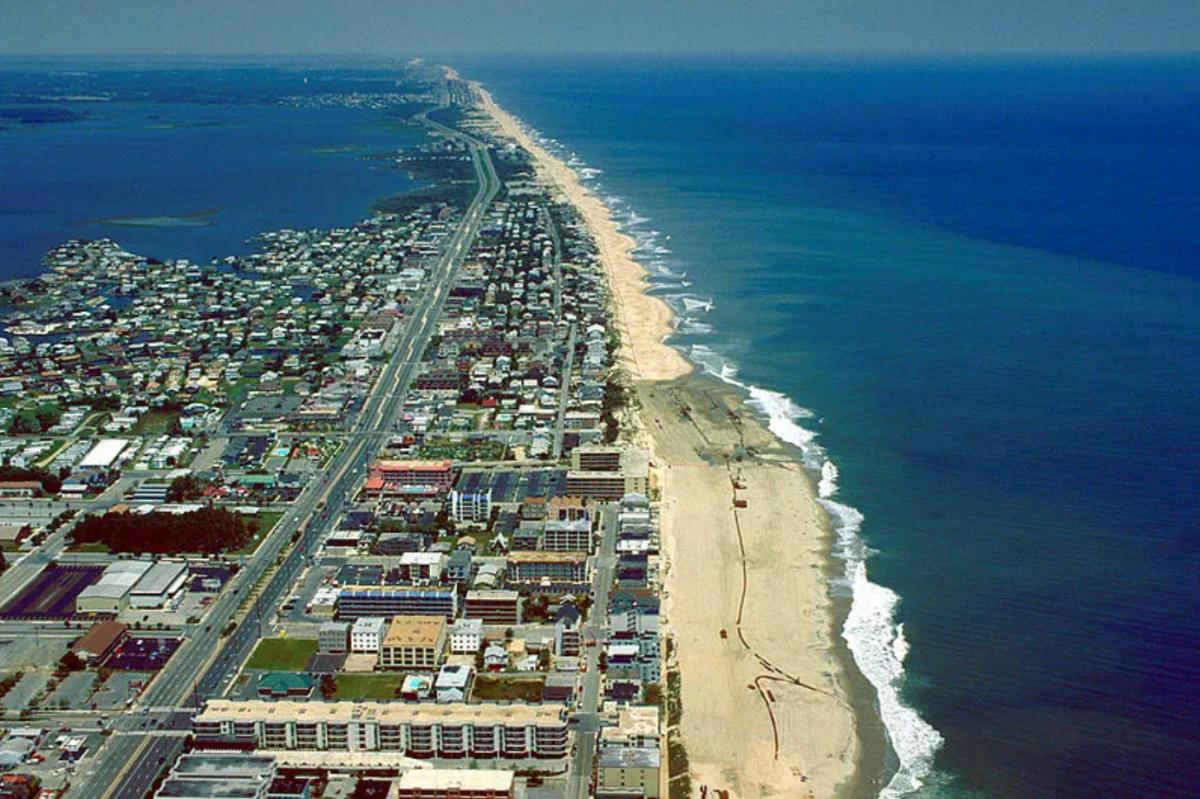The 442nd session of the Maryland General Assembly opens today under conditions that were completely unimaginable a year ago.
The COVID-19 pandemic has created a broad and deep public health crisis and has devastated the state economy. In many ways, that’s the essence of what the 2021 legislative session will be about.
Beyond the policy challenges, the pandemic has completely changed how lawmakers will do their jobs over the next 90 days. They’ll hold virtual hearings, meet in floor sessions surrounded by plastic shields, and, in the case of the House of Delegates, convene in two separate places simultaneously. The State House will be sealed shut. Lobbyists and advocates barely will be visible. The nightly party scene will be nil.
On top of that, the session begins with American democracy under attack — amid fears that the Maryland State House and 49 other state capitals could be targeted by the same extremists who stormed the U.S. Capitol a week ago.
State officials have promised to beef up security in and around the State House, and Governor Lawrence J. Hogan Jr. (R) offered assurances that the people’s business can be conducted safely.

Gov. Larry Hogan
“Trust me, we’re not going to leave ourselves unprotected,” he said Tuesday.
The COVID-19 virus and its economic aftermath pose the biggest challenges to lawmakers as they go about business and set policy agendas for the next three months. Hogan and Democratic legislative leaders say they will devote their time to helping the neediest — those who have lost jobs, face evictions, and have, in myriad ways, been ravaged by the pandemic. But small businesses need help as well, and local governments are also struggling to meet the demands of their constituents.
Maryland policymakers also have unfinished business from last year, when the legislative session was cut short three weeks by the pandemic. It was the first time the legislature went home early since the Civil War.
Even as they agree on overarching priorities for the session, Hogan and the Democrats do not see eye-to-eye on solutions. Hogan and legislative Republicans will be reluctant to raise taxes or spend liberally. Democrats, buoyed by knowledge that President-elect Joe Biden and an all-Democratic Congress are about to take over in Washington, D.C., seem more anxious to be generous with the state exchequer at a time of great need in so many communities.
Even so, Democrats will be under intense pressure from their left flank to spend even more — and to enact more progressive policies in a variety of areas.
The day before the legislative session is often a time for partisan politicking, and even under the unique circumstances, Tuesday was no exception.
Maryland Democrats held their annual pre-session luncheon virtually, and Hogan gave a pre-session news conference to announce his latest effort to bring nonpartisan redistricting to the state — leavened with a fresh dose of criticism for State House Democrats.
“Sadly, but not surprisingly, legislators have refused to act,” he said.
The Democratic agenda
At the Maryland Democratic Party’s annual virtual luncheon, legislative leaders laid out some of their ambitious plans for the unusual 2021 session, including cracking down on slow unemployment payments and reforming law enforcement policy.

Senate Pres. Bill Ferguson (D-Baltimore City) and House Speaker Adrienne A. Jones (D-Baltimore County) offer support for the Blueprint for Maryland’s Future education reform bill during a hearing in February. Photo by Danielle E. Gaines, Maryland Matters
House Speaker Adrienne A. Jones (D-Baltimore County) said robust state COVID-19 relief, coupled with a slew of long-term reforms, will be among the legislature’s top efforts during the upcoming session.
Jones and Senate President Bill Ferguson (D-Baltimore City) highlighted the disproportionate impact of the COVID-19 pandemic on communities of color.
“The gaps that we all knew existed have simply been exacerbated,” Ferguson said. “They have gone from gaps to canyons.”
Their remarks came a day after Hogan outlined his plans for a state stimulus package through a mix of targeted tax cuts and tapping a portion of the state’s rainy day fund. Jones didn’t address Hogan’s proposed stimulus, but pledged to look at “targeted relief” during the upcoming session.
“We will look at targeted state relief to families and small businesses with utility payments,” Jones said. “And we’ll look to help some of our hardest hit industries,” such as restaurants.
She called the state’s BEACON unemployment benefits system, which was rolled out during the pandemic, “outrageously broken” due to the long wait times some Marylanders have experienced — and pledged to add statutory requirements to the system.
“While this has been an unprecedented strain on the system, we can do better,” Jones said. “Every Marylander who is eligible and needs help, should get help — and quickly.”
Many of Jones’ top agenda items for the upcoming session could impact the state long after the pandemic is over. She predicted the House will override Hogan’s veto on the sweeping Kirwan education reforms.
That veto could come later in the session, lawmakers told Maryland Matters. While Republican lawmakers have pushed back on passage of those multibillion-dollar reforms amid the pandemic, the Department of Legislative Services said the state has enough money to fund the Kirwan efforts through 2026.
Jones also intends to enact the House Workgroup to Address Police Reform and Accountability’s recommendations during the session, including banning no-knock warrants and police chokeholds.
Jones said the House will repeal Maryland’s Law Enforcement Officers’ Bill of Rights. And Jones plans to outline her agenda for racial and economic justice in the coming days.
“Corporate boards should look like their customers,” Jones said. “Black homes should be appraised for the same amount as their white neighbors. Great ideas and businesses should get credit because they’re great ideas, not because they’re the ideas of the connected class.”
Some of the House’s earliest planned legislation is aimed at preventing another six-figure payout by the Maryland Environmental Service, like the one former director Roy McGrath received when he left the agency last year to become Hogan’s chief of staff.
Jones said the bill will address what she called the “outrageous abuse of power and misuse of state money at that agency.”
“No one is above the law,” she added.
Jones also said the House will make mail-in voting a permanent option for Marylanders. How that will be done is not immediately clear, since absentee ballots were available under certain circumstances before the pandemic. Voting by mail skyrocketed during Maryland’s statewide elections in 2020, with an unprecedented number of voters opting to cast ballots by mail instead of at a traditional polling place.
Other election reform efforts are also expected during the legislative session: Sen. Cheryl C. Kagan (D-Montgomery) told members of the State Board of Elections during a Tuesday afternoon meeting that she intends to introduce what she calls a “kitchen sink” bill to look at several election-related reforms.
Beyond his $1 billion COVID relief package, Hogan has yet to lay out any priorities for the General Assembly session.
Day-to-day security
Lawmakers will face a series of new security procedures around the capitol complex ― related to the pandemic, as well as heightened political tension and possible violence.
To gain entry to the State House campus each day, lawmakers and staff will answer a health questionnaire through an app on their cell phones.
Security changes include increased police officers and security, increased identification procedures to get inside buildings and limiting proximity to all buildings, said Nick Cavey, spokesman for the Department of General Services.
“These actions are being taken as a precaution for the safety of all persons doing business on state property and will ensure the protection of state employees, our buildings and grounds, and visitors to our Annapolis complex buildings,” Cavey said.
In the event of an attack, local police agencies, the Maryland State Police and the National Guard are available for reinforcement.
Hogan announced Tuesday that the Maryland National Guard deployment in D.C. would be doubled, but said there’s still adequate personnel to reinforce the State House, if necessary.
“I’m comfortable, though we’re not sure what we may see, that we’ll be better prepared than they were on Capitol Hill last Wednesday,” he said.
Asked about an FBI bulletin warning of widespread armed protests at state capitols, Hogan said officials have received hundreds of death threats, but no specific plans to attack the State House have been uncovered. “We do not have any credible, detailed threats here. Look, a lot of this is real. And a lot of it is fake. There’s disinformation all over the internet,” Hogan said.
By Josh Kurtz, Bennett Leckrone, and Danielle E. Gaines



